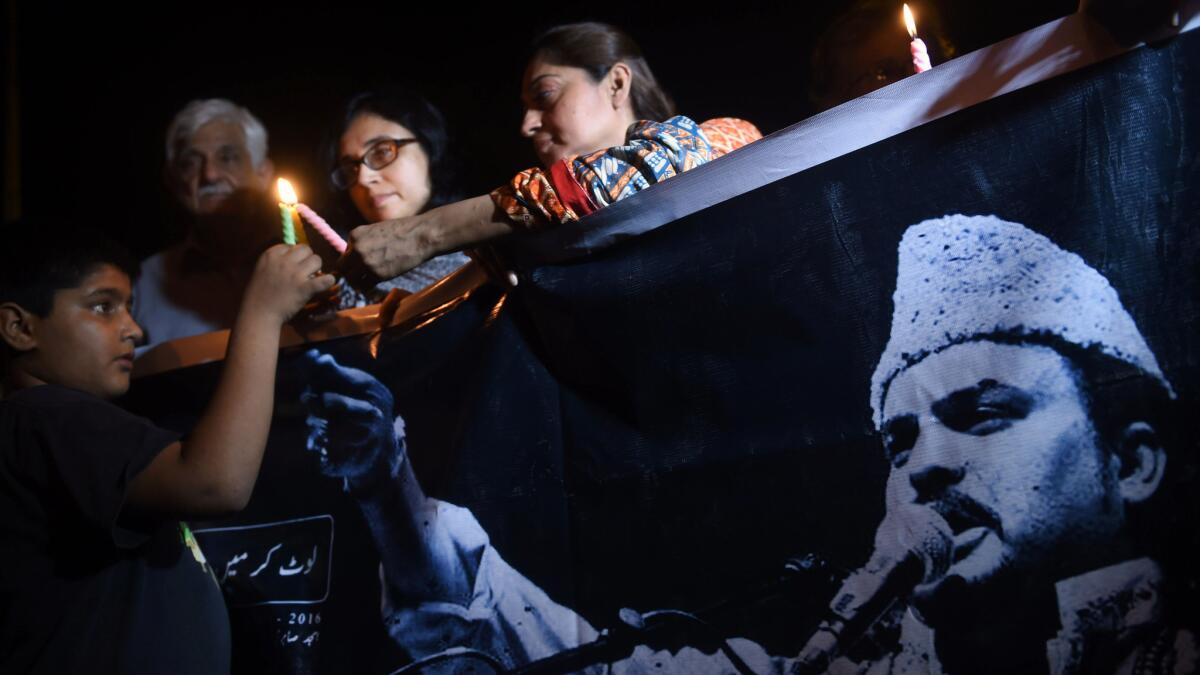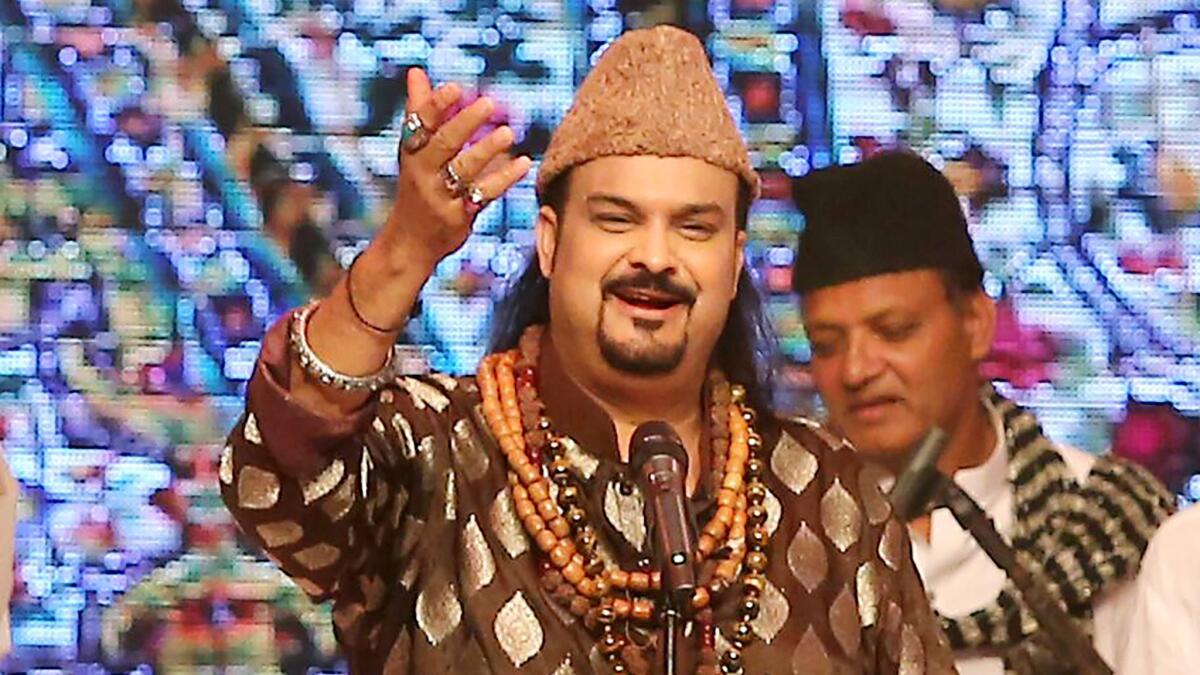Beloved Sufi performer gunned down in Pakistan is remembered as devoted, humble

- Share via
Reporting from Islamabad, Pakistan — When Amjad Sabri, one of Pakistan’s best known performers of Sufi devotional music, was gunned down in Karachi, the country’s private news channels ran continuous coverage of his killing for 24 hours.
People across the country grieved and staged protests. Thousands congregated in Karachi to offer funeral prayers.
“He used [a] message of God to unite people,” said Pakistan’s federal information minister, Pervaiz Rashid, who called Sabri an ambassador of peace. “His killers are enemies of humanity and God.”
See the most-read stories in World News this hour >>
Police described Sabri’s slaying last week by gunmen on motorcycles as a targeted killing, but said a motive was not immediately known.
The Pakistani Taliban militant group took responsibility, with a spokesman saying Sabri was killed for blasphemy.
In 2014, a blasphemy case was filed against Sabri by the Islamabad High Court after he mentioned members of the prophet Muhammad’s family in a song.
Sabri, 45, came from a prominent family of qawwals, performers of a form of Sufi devotional music.

His father, Ghulam Farid Sabri, and uncle, Maqbool Sabri, were leaders in Sufi music and influenced Amjad Sabri, who started singing at an early age.
“He is loved more because of the legacy which he was carrying,” said Sarwat Ali, a music critic and writer who teaches music at National College of Arts, Lahore. “His father and uncle were far more superior musically, but he was more popular among the young people of Pakistan…. It’s a huge loss.”
Farooq Faisal Khan, an Islamabad-based journalist and a fan of the Sabri family, said Amjad Sabri was a darling of the media and easily approachable.
“He kept on living in a humble house built by his late father in an old neighborhood of Karachi despite achieving phenomenal success worldwide,” Khan said.
Ali Raj, a friend of Sabri’s, wrote in the Express Tribune, a leading Pakistani English newspaper:
“In a society like ours where sectarian lines and groupings are so clearly defined, Amjad Sabri lived life on his own terms. He was as much of a Shia as he was a Sunni, passionate about where he was coming from and what he believed in.”
Sahi is a special correspondent.
MORE WORLD NEWS
President Trump? Among U.S. allies, Japan may be one of the most anxious about that idea
Heat wave aggravates chronic water problems in occupied West Bank
Pope prays at Armenia memorial after denouncing genocide
More to Read
Sign up for Essential California
The most important California stories and recommendations in your inbox every morning.
You may occasionally receive promotional content from the Los Angeles Times.










